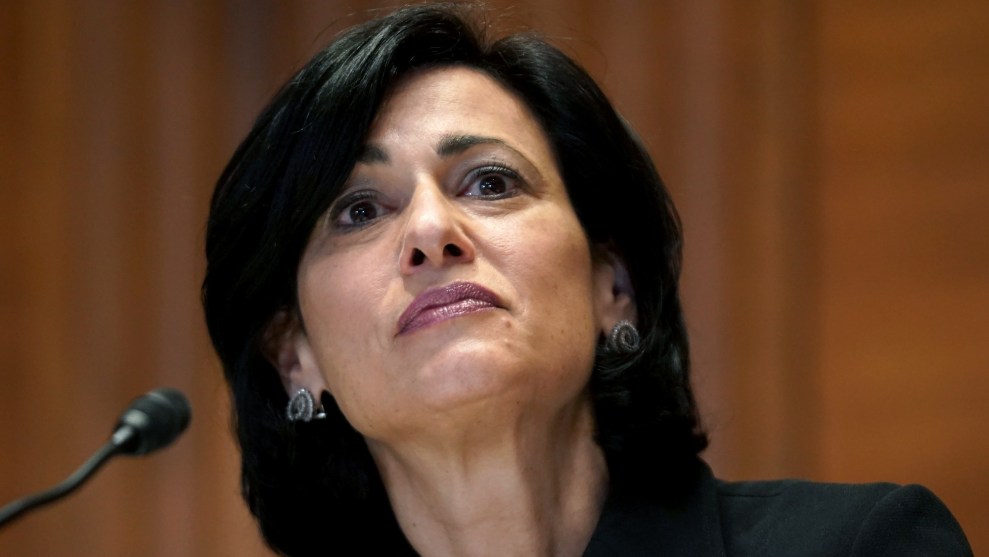
CDC Director Rochelle Walensky testifies in the Senate in May.Greg Nash/AP
Dr. Rochelle Walensky, the director of the Centers for Disease Control and Prevention, said Friday that Fox News host Sean Hannity’s recent claim that COVID vaccines don’t protect some people is “false,” in an unusually direct effort to correct misleading information.
Hannity said on his show Thursday that “the science shows the vaccine will not necessarily protect you. It’s not protecting many people.” Asked to respond Friday by MSNBC’s Ari Melber, Walensky said that the “vast majority of people in this country who are getting infected with COVID, who are showing up in the hospital with COVID, and now who are dying with COVID are people who have not received this vaccine.”
She said she believes Hannity’s claim is false. “Even if you happen to be one of the breakthrough cases, your case will be far milder than if you didn’t have a vaccine,” Walensky said.
But the CDC director conceded that may be changing, citing data from abroad that indicates vaccine protection may decline. “We are starting to see evidence of reduced protection against mild and moderate disease,” Walensky, along with other health officials said in an August 18 statement announcing a plan to administer booster shots. “Based on our latest assessment, the current protection against severe disease, hospitalization, and death could diminish in the months ahead.”
Walensky and other health officials face the challenge of convincing unvaccinated people to get shots while also explaining the need for boosters. While people like Hannity can cite breakthrough cases to misleadingly dismiss the value of getting vaccinated at all, public health officials make a more complicated, though perfectly logical, argument: Vaccines provide protection against COVID, especially severe outcomes and death. But that protection may diminish over time.
This exchange comes as more public and private organizations are enforcing vaccine mandates. The University of Virginia on Friday announced that it had “unenrolled” 238 students for failure to comply with the school’s vaccine mandate.
Many more mandates are likely to come after the Food and Drug Administration’s expected approval of Pfizer’s COVID vaccine next week. Moderna’s application for full approval for its vaccine is expected to come “at least several weeks” later, according to the New York Times. Still, the Pfizer approval alone will probably offer a green light for public and private organizations that held off on mandates pending an FDA approval. The Pentagon, for instance, is expected to cite the approval in requiring about 1.3 million active-duty troop to get vaccines.
















